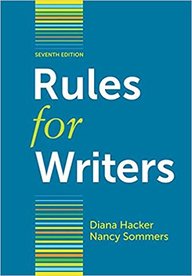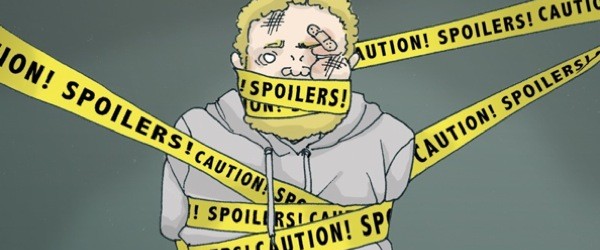 by Rebecca Rodriguez In high school, we are given our first copy of Diana Hacker’s Rules for Writers, which we are commanded to worship. It’s not a bad book, by any means, and (if read for anything other than MLA citation instructions) specific information on sentence structure can be found within it. In fact, there is an entire section dedicated to taking wordy sentences and tightening them. ←Example→ There is a section on tightening wordy sentences. Although fair warning is given that short sentences aren’t always concise, wordiness is considered ultimately taboo. Not only does it focus on eliminating redundancies, but it encourages us, the writers, to cut inflated phrases (e.g. change “At the present time…” into “Now...” or “Currently...”). We also must take every opportunity to reduce a clause into a phrases, or a phrase into a single word. Though we try not to worry about these rules outside of our research papers, it’s too late. Today’s generation of writers have already been brainwashed.
0 Comments
by John Gross
Throughout time technology has changed how the writer crafts his novel. From pen and paper, to typewriters, to word processing—the tools of the trade are constantly evolving. In today’s world, the writer can craft a sentence and move it around to different places, supplementing paragraphs where he sees fit. This can be a powerful tool, that makes the revision process more fluid and dynamic. An author can be less committed to putting something on a page, where it can be easily reshaped, moved, and removed. While this technology has fundamentally changed how the novelist crafts his work, it hasn’t really changed how the reader consumes it. Sure, we are in a period of time that is showing the rise of e-readers and digital print, but ultimately the novel is being experienced in the same traditional way. By Jessica M. Tuckerman Here’s a brief description of one of my favorite stories: Desmond Miles just escaped from Abstergo Industries, the modern day face of the Knights Templar, after he was forced to live out the genetic memories of his ancestor who fought in the crusades. He escapes with Lucy Stillman and two others who help him to reach a secluded cave where Desmond relives the memories of Ezio Auditore da Firenze. The story jumps between Ezio’s story in the Italian Renaissance and the cave where Desmond is desperately trying to find an alien device which will destroy the world if it falls into the wrong hands. By reliving Ezio’s memories, Desmond hopes to find where the device is hidden before Abstergo catches up to him.
The story is full of twists and turns. I actually cried when Ezio, the narrator for much of the story, had to watch his family hang in the middle of Firenze. I love the plot, I love the framed narrative, I love seeing Italy during the Renaissance. I was consistently surprised throughout my first reading of the piece and I truly recommend that you pick it up. The story is from Assassin’s Creed II. A video game. by Andrew Bates
There are certain unspoken rules amongst aficionados of media. One must always have a personal list of at least ten favorite works to call “the best” when called upon by others. When topics such as Twilight and 50 Shades of Grey come up, they must immediately refute them as terrible and trite. Using your cell phone in a dark movie theater is sacrilege. The arguably most important rule, and the one that is most common amongst media absorption, is that one must not reveal important dramatic turn of events. In other words, tag your spoilers. by Brian Maloney  credit: dailyinvention via flikr credit: dailyinvention via flikr Whenever I visit my parents around dinner time, my dad has the television on. This is not uncommon. Around this time however, there are only a handful of syndicated comedies that he will watch. And most of them make me leave the room. When I complain to my parents about how terrible these television shows are, they reply that after working all day they just want to “veg out.” So what does this comment say about my parents? Like many Americans at the end of the day, my parents are tired of thinking. |
Archives
April 2024
Categories
All
|
|
Glassworks is a publication of Rowan University's Master of Arts in Writing 260 Victoria Street • Glassboro, New Jersey 08028 glassworksmagazine@rowan.edu |
All Content on this Site (c) 2024 Glassworks
|


 RSS Feed
RSS Feed
